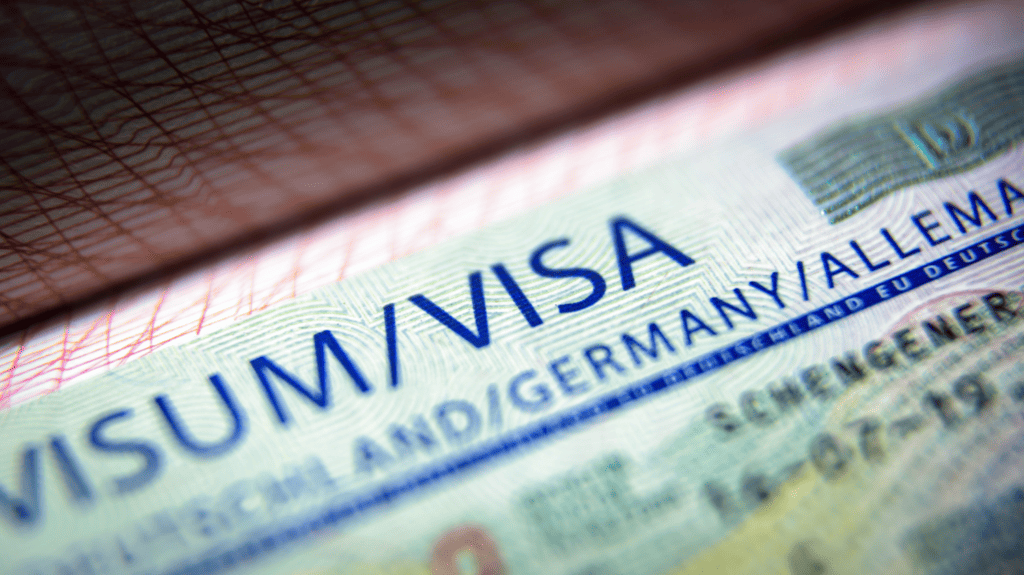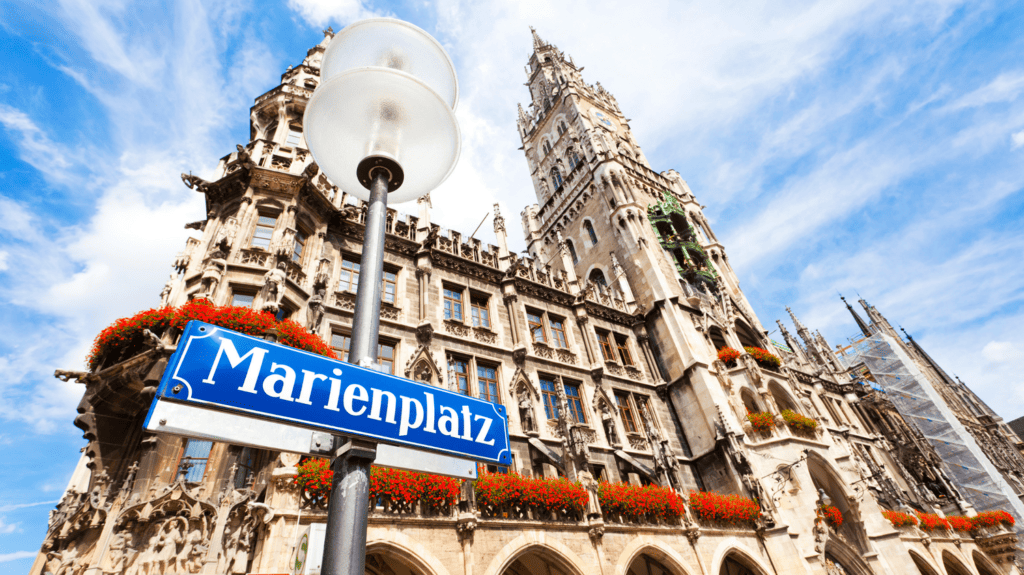Moving to Germany from USA

If you’re considering moving to Germany from USA, you’re about to embark on an exciting journey into a country rich in history, culture, and stunning natural beauty. This guide aims to smooth your transition, offering practical advice, insights into the German way of life, and, most importantly, the best German cities to make your new home.
Germany is a central European country characterized by a temperate seasonal climate, diverse landscapes, and a unique blend of modern and traditional lifestyles. It’s a hub for innovation, excellent education, and has a robust economy making it a lucrative destination for Americans. However, like any significant move, it comes with its set of challenges and considerations.

Pros and Cons of Moving to Germany from USA
Emigrating from one country to another involves weighing the benefits against the potential challenges. As you consider moving to Germany from USA, let’s delve deeper into the pros and cons of this life-changing decision.
Pros
- Superior Healthcare: Germany’s healthcare system is universally recognized as one of the most efficient and comprehensive in the world. With a statutory health insurance scheme, it ensures that all residents have access to a broad spectrum of medical services. Expats will appreciate the high standard of care, access to advanced medical technology, and the relatively low cost of treatments and medications compared to the US.
- Affordable and High-Quality Education: Germany is home to many internationally renowned universities offering a wide range of programs. Most notably, public universities in Germany charge little to no tuition fees, even for international students, making higher education accessible to all.
- Robust Public Transportation: Germany’s public transportation system is well-developed and highly efficient. The extensive network of trains, trams, buses, and subways makes it easy to travel both within and between cities without the need for a personal vehicle.
- Thriving Economy: Germany has the largest economy in Europe, offering a wide array of job opportunities in sectors like automotive, engineering, IT, and renewable energy. It’s also home to numerous global corporations, providing numerous career opportunities for skilled professionals.
- Cultural Richness and Diversity: From its UNESCO world heritage sites, music festivals, and vibrant art scene to its culinary diversity, Germany is culturally rich and varied. This cultural immersion can enrich your life experience and worldview.
Cons
- Language Barrier: While English is commonly spoken in larger cities and among younger Germans, many aspects of daily life, including local news, official documents, and casual conversations, primarily occur in German. Even in the workplace, a basic understanding of German can be essential, especially in sectors that deal with local clients.
- Complex Bureaucracy: Germans are known for their efficiency, but their administrative processes can be complex and time-consuming. Whether it’s dealing with visa applications, securing housing, or understanding tax obligations, navigating through the German bureaucracy can be challenging.
- Weather: If you’re accustomed to the sunny climate of many parts of the US, Germany’s weather may require an adjustment. Winters can be cold, and the country often has overcast skies and rainy days, especially in the northern regions.
- Cost of Living: While healthcare and education may be more affordable, the cost of living in major German cities like Munich, Frankfurt, or Hamburg can be high. Rent, utilities, groceries, and dining out can all add up, especially when compared to smaller US cities or towns.
- Cultural Differences: While experiencing a new culture is part of the excitement of moving to a new country, it can also lead to culture shock. Germans are often perceived as more reserved and direct than Americans, which can initially come across as unfriendly. Additionally, punctuality is taken very seriously in Germany, a contrast to the more relaxed attitudes in some parts of the US.
Weighing these pros and cons can help you make an informed decision about moving to Germany from the US, setting you up for a smoother transition into your new life.

Understanding the Visa Process
Moving to Germany from USA involves more than just packing your belongings. One of the critical administrative tasks you’ll need to accomplish is securing the appropriate visa. Below is a more detailed overview of the four main types of visas that Germany offers:
- Tourist/Visitor Visa: This visa is intended for those planning a short visit to Germany for leisure or business purposes, lasting up to 90 days. While Americans can typically enter Germany for up to 90 days without a visa, this tourist visa may still be needed for certain activities or circumstances. It requires proof of travel plans, including return flight and accommodation bookings, travel insurance covering medical emergencies, and evidence of financial means to support yourself during your stay. The visa doesn’t permit work and cannot be converted to a long-term visa while in Germany. For comprehensive details, visit the German Tourist Visa page.
- Job Seeker Visa: This six-month visa is designed to provide individuals with the opportunity to move to Germany and look for employment. Applicants must hold a recognized university degree and have a minimum of five years of relevant work experience in their field. Additionally, you’ll need to prove that you have sufficient funds to support yourself throughout your stay. Importantly, while this visa allows you to seek employment, you cannot work under it. Once you have secured a job offer, you can apply for an employment visa. For more information, check the German Job Seeker Visa page.
- Working (Employment) Visa: The Working Visa is granted to individuals who already have a job offer in Germany. Requirements include a binding job offer or a signed contract from a company in Germany and, in some cases, approval from the Federal Employment Agency. The visa’s validity often matches the contract’s length, and it can be extended. Some professions may require recognition of foreign professional qualifications. For further information, refer to the German Work Visa page.
- Student Visa: For international students wishing to pursue an academic degree in Germany, a Student Visa is required. The prerequisites include a letter of admission from a recognized German university, proof of financial resources to cover living expenses during the course duration, and health insurance coverage. Some students might also need to provide proof of academic qualifications and language proficiency depending on the chosen program. To explore more about the process, visit the German Student Visa page.
Each visa category has specific requirements and processes. Therefore, it’s crucial to research carefully, prepare your documents in advance, and allow plenty of time for the application process. Be sure to consult the German Embassy or Consulate in your area for the most accurate and up-to-date information.
Tips for Moving to Germany from USA
- Learn Basic German: While English is widely spoken in urban areas and among younger generations, day-to-day living in Germany often requires a basic understanding of German. Start by learning simple phrases, and then gradually expand your vocabulary. Use language learning apps, take a class, or practice speaking with native German speakers. Even a rudimentary understanding can go a long way in helping you feel more at home.
- Understand the Visa Process: As discussed earlier, getting the appropriate visa is critical. Make sure you fully understand the requirements of the visa you are applying for, compile all necessary documentation, and start the process well in advance. The German Embassy or Consulate in your area can provide you with the most accurate and current information.
- Plan for Healthcare: Germany has a statutory health insurance system that ensures all residents have access to comprehensive medical services. As an expat, you will need to register for health insurance. Research your options, and ensure you understand the costs and coverage. In most cases, employers contribute to the cost of health insurance.
- Decide What to Pack: When it comes to clothing, remember that Germany has four distinct seasons, so you’ll need a range of clothing options. Moreover, consider the size of German homes (generally smaller than American homes) before deciding which personal items to bring with you.
- Budget Accordingly: Although certain costs such as healthcare and education are generally more affordable in Germany than the US, the cost of living in major German cities can be higher. Research costs in your chosen city to create a realistic budget that accounts for rent, utilities, groceries, transportation, and leisure activities.
- Find a Place to Live: Decide whether you want to live in a city or a more rural area, and then research housing options. Websites and real estate agencies can provide useful information. In big cities, the competition for apartments can be high, so start your search early.
- Consider Transportation: Public transportation in Germany is reliable and extensive, so you may not need a car, particularly if you’re living in a city. If you do decide to drive, familiarize yourself with the German driving laws and consider getting a German driver’s license.
- Research Schools: If you are moving with children, research schooling options. Germany offers a mix of public, private, and international schools. Be aware that some schools have long waiting lists, so start the application process early.
- Get Familiar with German Etiquette: Germans value punctuality, privacy, and directness. Make an effort to understand these cultural norms to avoid misunderstandings and to build strong relationships with your new neighbors and colleagues.
- Enjoy the Culture: Germany is known for its rich history, cultural festivals, and diverse culinary scene. Take advantage of living in Germany by exploring historical sites, participating in local festivals like Oktoberfest, and tasting a variety of German delicacies.
These tips will help you navigate the process of moving to Germany from the US and settle into your new home with greater ease.
5 Best Cities in Germany for Americans Moving to Germany from USA
As you consider moving to Germany from USA, here’s a closer look at five German cities that offer a fantastic blend of history, culture, and modernity, making them ideal places for Americans to live.

Berlin
As Germany’s capital and largest city, Berlin boasts a vibrant culture, rich history, and diverse population. Known for its world-class museums, bustling nightlife, and thriving art scene, Berlin has something for everyone. Although the cost of living is higher than in smaller German cities, it is still more affordable compared to many major US cities. Check out Visit Berlin for more information.

Munich
Famous for its annual Oktoberfest, Munich offers a mix of traditional Bavarian charm and modern amenities. It is a hub for many international corporations, particularly in the automotive industry, making it an excellent choice for expats seeking job opportunities. The city also offers easy access to nature, with the Alps just a short drive away. Visit Simply Munich for more information.

Frankfurt
Known as Europe’s financial hub, Frankfurt is a modern city with a robust job market, particularly in finance and business. The city is extremely international, with a large expat community and many services catering to international residents. Despite its skyscraper-filled skyline, Frankfurt also has many green spaces and is located near the picturesque Rhine Valley. For more details, visit Frankfurt Tourism.

Hamburg
As Germany’s second-largest city, Hamburg offers a unique charm with its maritime heritage. It’s famous for its bustling port, the Elbe River, and the stunning Elbphilharmonie concert hall. With a lively cultural scene and plenty of green spaces, Hamburg offers a high quality of life. Visit Hamburg Travel for more information.

Heidelberg
For those who prefer smaller cities, Heidelberg is a perfect choice. This picturesque town is renowned for its historic charm, embodied by the Heidelberg Castle and the Old Town. Home to Germany’s oldest university, Heidelberg has a vibrant student population, making it a lively and youthful city. Find out more on Heidelberg’s Official Tourism Website.
As you consider which city is best for you, take into account factors such as the cost of living, job opportunities in your field, access to amenities, and the cultural environment.
The thought of moving to Germany from the USA may seem daunting, but with the right planning and preparation, it can be a rewarding and enriching experience. This guide aims to provide a comprehensive overview of what you need to consider when planning your move, from understanding the visa process to selecting the best city to suit your lifestyle. With its robust economy, high quality of life, and rich cultural heritage, Germany offers a unique and welcoming environment for Americans looking to start a new chapter abroad.







One Comment